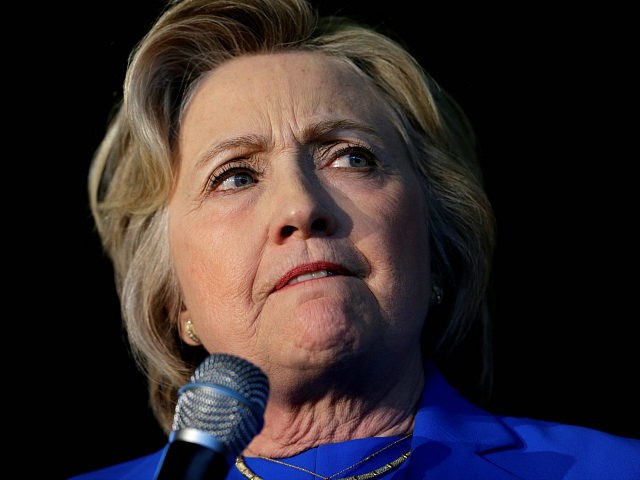Last week, we learned more about the problems former Secretary of State Hillary Clinton’s staff faced in keeping her private email system running. They were, in fact, wrestling with matters of national security.
The revelations came thanks to our prying loose the email records referred to in the May 2016 State Department’s Office of the Inspector General (OIG) report criticizing former Secretary of State Clinton’s email practices.
The OIG report makes reference to the emails, but they were not released to the public until now. We obtained them under a June 14, 2016, court order issued by U.S. District Court Judge Emmet G. Sullivan in accordance with an unopposed motion by Judicial Watch to obtain the records. As an explosive Associated Press article makes clear, these new emails raise more questions:
Former Secretary Hillary Clinton failed to turn over a copy of a key message involving problems caused by her use of a private homebrew email server, the State Department confirmed Thursday. The disclosure makes it unclear what other work-related emails may have been deleted by the presumptive Democratic presidential nominee.
We received these documents in connection with our Freedom of Information Act (FOIA) lawsuit seeking records about the controversial employment status of Huma Abedin, Clinton’s then-deputy chief of staff (Judicial Watch v. U.S. Department of State (No. 1:13-cv-01363)). The full case history of the Abedin employment lawsuit is accessible on the Judicial Watch website.
Here are the records:
- March 17, 2009 memorandum prepared by S/ES-IRM staff regarding communications equipment in the Secretary’s New York residence identified a server located in the basement. (This email shows early on that the Obama State Department was very much aware of Mrs. Clinton’s email server, down to its very location in her house!)
- In November 2010, Secretary Clinton and her Deputy Chief of Staff for Operations discussed the fact that Secretary Clinton’s emails to Department employees were not being received. The Deputy Chief of Staff emailed the Secretary that “we should talk about putting you on state email or releasing your email address to the department so you are not going to spam.” In response, the Secretary wrote, “Let’s get separate address or device but I don’t want any risk of the personal being accessible.” (This is the smoking gun email that Mrs. Clinton evidently withheld, according to the AP.)
- In another email exchange, the Director of S/ES-IRM noted that an email account and address had already been set up for the Secretary and also stated that “you should be aware that any email would go through the Department’s infrastructure and subject to FOIA searches.”
- OIG reviewed emails showing communications between Department staff and both individuals concerning operational issues affecting the Secretary’s email and server from 2010 through at least October 2012. These records show that State Department systems were altered to allow Mrs. Clinton special email system to operate on State Department computer networks. As Investor’s Business Daily opined, this “accommodation” also put the State Department computer networks at risk.
- On January 9, 2011, the non-Departmental advisor to President Clinton who provided technical support to the Clinton email system notified the Secretary’s Deputy Chief of Staff for Operations that he had to shut down the server because he believed “someone was trying to hack us and while they did not get in i didnt [sic] want to let them have the chance to.” Later that day, the advisor again wrote to the Deputy Chief of Staff for Operations, “We were attacked again so I shut [the server] down for a few min.” On January 10, the Deputy Chief of Staff for Operations emailed the Chief of Staff and the Deputy Chief of Staff for Planning and instructed them not to email the Secretary “anything sensitive” and stated that she could “explain more in person.”
These new records show that Secretary Clinton had zero interest in disclosing her emails to the public as the law requires. And the emails show that the Obama State Department gave special accommodations to Clinton’s email system, which the agency knew was unsecured, was likely hacked, and was not transparent under FOIA.

COMMENTS
Please let us know if you're having issues with commenting.